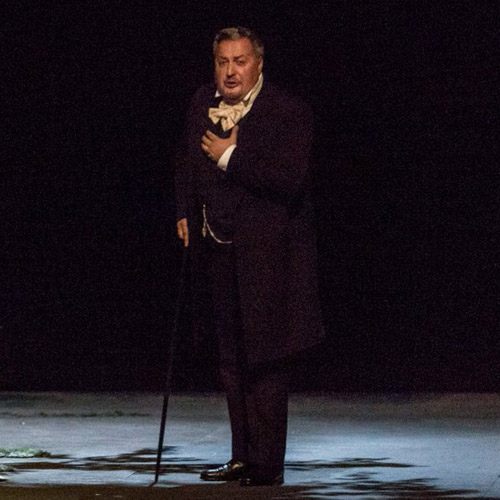
Review
|
13.11.2018
La Traviata – Paris Opera 2018
“It seemed like the role of Germont père was written for the Georgian George Gagnidze. Just like the role requires one could throughoutly enjoy noble Verdi singing after his fierce entrance scene.”
Sieglinde Pfabigan, Der Neue Merker
“Already at the beginning of the second act, Kurzak and baritone George Gagnidze, in the role of Giorgio Germont, were heavily acclaimed by the audience with sceams of “Bravi!”… (…)
It was thus the voices that raised the audience at the end of the performance, with reruns until October 26 and again between December 11 and 19, to thank Kurzak, Gagnidze and Jean-François Borras (Alfredo Germont), the sensitivity with which they embodied their characters.”
EFE, La Vanguardia
“It seemed like the role of Germont père was written for the Georgian George Gagnidze. After a fierce entrance, just as the role requires, one could throughoutly enjoy noble Verdi singing.”
Sieglinde Pfabigan, Der Neue Merker
“Already at the beginning of the second act, Kurzak and baritone George Gagnidze, in the role of Giorgio Germont, were heavily acclaimed by the audience with sceams of “Bravi!”… (…)
It was thus the voices that raised the audience at the end of the performance, with reruns until October 26 and again between December 11 and 19, to thank Kurzak, Gagnidze and Jean-François Borras (Alfredo Germont), the sensitivity with which they embodied their characters.”
EFE, La Vanguardia
“This Germont knows how to sing “Di provenza il mar il sol” dolce, and how to convince in his last phrases of remorse.”
Patrice Henriot, Opéra Magazine
“George Gagnidze sings a scrupulously nuanced Germont, with a finely modeled cantabile… .”
Didier van Moere, ConcertoNet
“George Gagnidze’s Germont is certainly traditional but effective…”
Alain Dualt, Opera Online
“To better achieve his goals and convince La Traviata to give up Alfredo, Giorgio George Gagnidze decided here to be immediately enveloping and caressing. He talks with his son using a very appropriate vibrato and his low notes are firmly set, even in the final tear of his remorse.”
Céline Wadoux, Olyrix
“George Gagnidze, (…), plays a severe Giorgio Germont, whose tone warms up as the character becomes human, which does not deprive him of being distressing during his duet with his son from the beginning.”
Audrey Bouctot, Forum Opera
“Giorgio Germont – George Gagnidze is a baritone who has been rightly acclaimed by the audience.”
Guy Courtheoux, Onsourtupas.fr
[Photo: Sebastien Mathé / Opéra national de Paris]
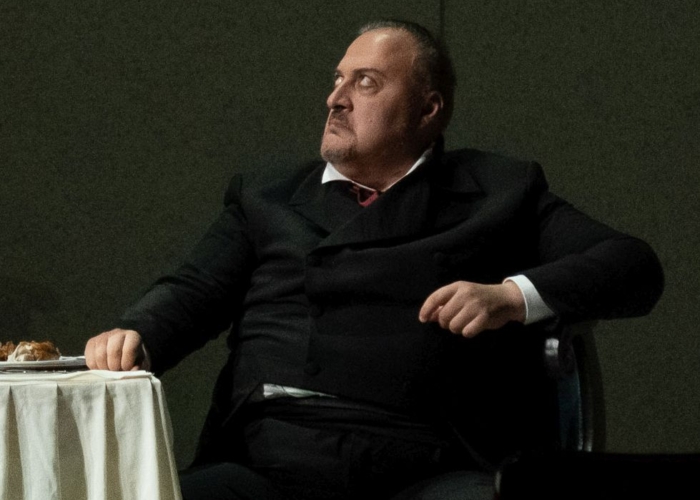
Review
|
16.10.2025
Reviews “Francesca da Rimini” in Turin
“George Gagnidze as her husband Gianciotto was excellent...” Paolo Gallarati, La Stampa
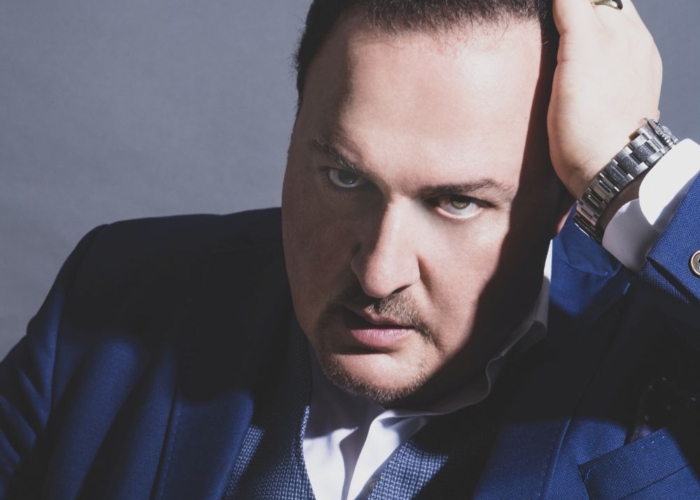
Review
|
10.10.2025
“L’Italia è la culla del mio repertorio”. L’intervista
di Giovanni Zambito - Il baritono George Gagnidze, tra le voci verdiane più autorevoli della scena lirica internazionale, si prepara a una nuova intensa stagione artistica che lo vedrà protagonista in Italia e all’estero. Dopo quasi 150 recite al Metropolitan di New York, Gagnidze tornerà nel Belpaese per tre appuntamenti di grande rilievo: Francesca da Rimini al Teatro Regio di Torino, Macbeth al Carlo Felice di Genova e Nabucco al Macerata Opera Festival. Parallelamente, sarà impegnato in importanti produzioni in Germania e Spagna, tra cui Der fliegende Holländer.
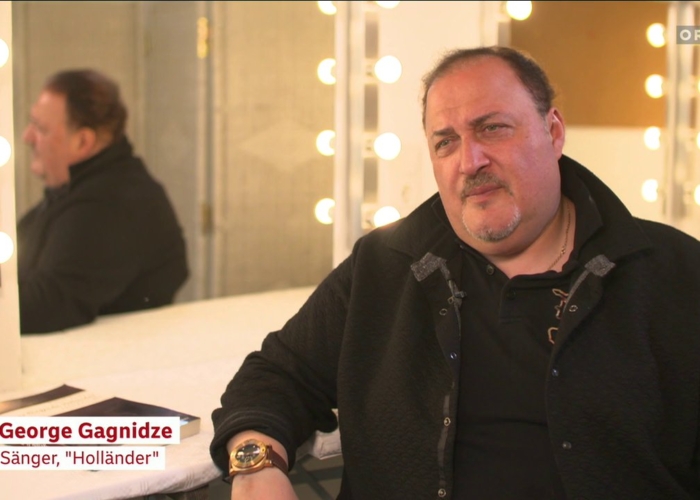
Interview
|
04.07.2025
Interview for ORF TV
In the lead-up to the premiere of Der fliegende Holländer at the Oper im Steinbruch Festival, George Gagnidze spoke with ORF TV about his role and the production in St. Margarethen. The interview, along with rehearsal footage, can be viewed here:
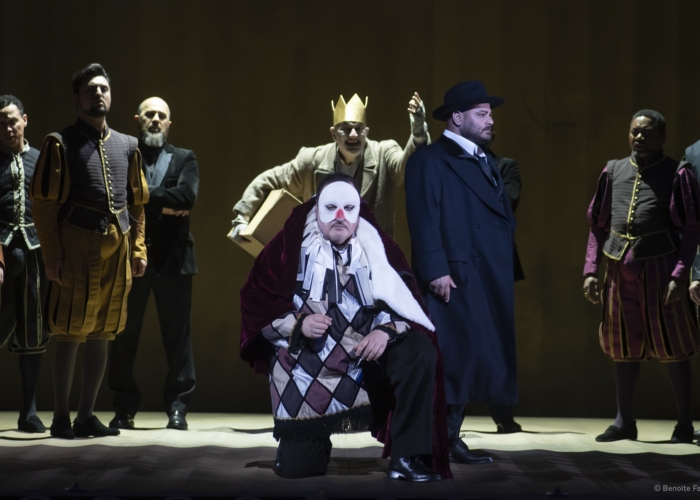
Interview
|
07.06.2025
Première Loge Interview
George Gagnidze recently spoke with Première Loge about his deep connection to Verdi and Rigoletto, the role he is currently singing at the Opéra national de Paris. The interview touches on his artistic journey, future projects, and his interpretation of one of opera’s most iconic characters.
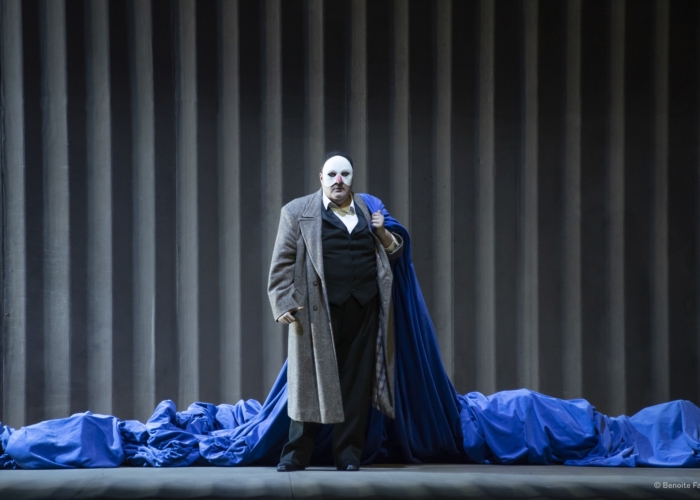
Review
|
06.06.2025
Press review “Rigoletto” in Paris, May/June 2025
“George Gagnidze, a veteran of his signature role, which he embodies masterfully with exemplary intelligence, (...) throws himself admirably into this demanding part: ... showing no noticeable signs of age ... he often reaches moments of true emotion, culminating in a faultless and particularly poignant finale.” François Lehel, Opéra




